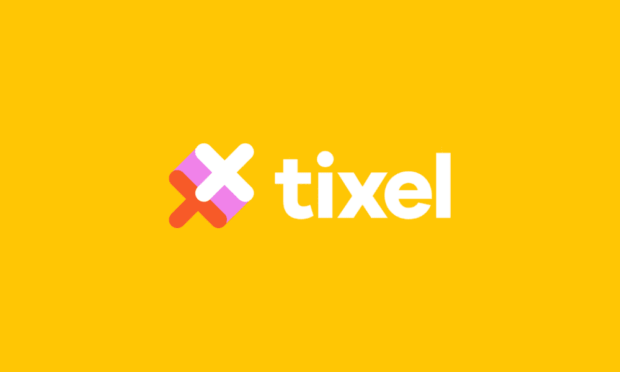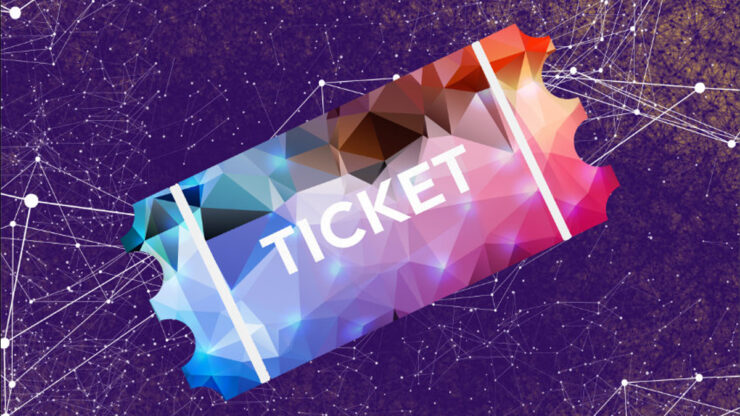Ticket fraud and scalping have long been a major problem for the live event industry, with fans often paying exorbitant prices for tickets that have been resold multiple times. This has led to frustration and resentment among fans, while also creating challenges for event organizers who struggle to ensure fair and transparent ticket sales.
Enter blockchain technology, which is being used to revolutionize the ticketing industry and ensure that tickets are sold securely and transparently. One platform that is leading the charge in this area is Tixel, a ticketing platform that uses blockchain to prevent ticket fraud and ensure fair pricing for both buyers and sellers.
About Blockchain

But what is blockchain, and how is it being used in the ticketing industry? In short, blockchain is a decentralized ledger that records transactions in a transparent and tamper-proof manner. Each transaction is verified by a network of computers and stored in a public database, making it difficult for fraudsters to manipulate or alter the data. This technology has the potential to revolutionize many industries, including ticketing.
About Tixel

Tixel is one of several blockchain-based ticketing platforms that are disrupting the traditional ticketing market. It was founded in 2017 by Jason Webb and Zac Leigh, two Australian entrepreneurs who saw an opportunity to use blockchain technology to address the challenges of ticket fraud and scalping.
The Tixel platform works by creating a secure and transparent marketplace for tickets. When a ticket is initially purchased, it is verified by Tixel and then recorded on the blockchain. The ticket is then sold through Tixel’s marketplace, where buyers can purchase tickets at fair and transparent prices.
One of the key advantages of Tixel is that it prevents ticket scalping by limiting the resale price of tickets. When a ticket is listed for resale, Tixel calculates a maximum price based on the original face value of the ticket and the demand for the event. This ensures that buyers are not forced to pay exorbitant prices for tickets that have been resold multiple times.
Tixel also uses a unique ticket transfer system that allows buyers to transfer tickets securely and without fear of fraud. When a ticket is transferred, it is verified by Tixel and then recorded on the blockchain. This ensures that the ticket cannot be counterfeited or sold multiple times, and provides buyers with peace of mind that they are purchasing legitimate tickets.
While Tixel is a relatively new player in the ticketing market, it has already gained significant traction in Australia and is expanding rapidly. The platform has been used by major event organizers such as Splendour in the Grass, Falls Festival, and Bluesfest, among others. It has also received significant investment from leading venture capital firms such as Airtree Ventures and Reinventure.
Other Platforms:

But Tixel is not the only blockchain-based ticketing platform on the market. Several other platforms are also using blockchain to disrupt the traditional ticketing market, including GUTS Tickets, Blockparty, and True Tickets.
GUTS Tickets is a Dutch company that uses blockchain to prevent ticket fraud and scalping. The platform uses smart contracts to enforce ticketing rules and ensure that tickets are sold at fair and transparent prices. It has been used for several major events, including the Dutch National Opera and Ballet.
Blockparty is a US-based platform that uses blockchain to create a secure and transparent ticketing system. The platform uses a proprietary blockchain protocol called SecureTicket, which is designed to prevent ticket fraud and ensure that tickets are sold at fair prices. It has been used for several events in the US, including music festivals and esports tournaments.
Despite the potential of blockchain-based ticketing platforms, there are still challenges to be overcome. One of the biggest challenges is adoption, as many event organizers are hesitant to switch to a new ticketing system. This is partly due to the cost and complexity of integrating blockchain technology into existing ticketing systems.
Another challenge is scalability, as blockchain-based ticketing platforms need to be able to handle large volumes of transactions in real time. This is particularly important for events with high demand, such as music festivals and sporting events.
However, despite these challenges, the potential benefits of blockchain-based ticketing platforms are clear. They offer a secure and transparent way to buy and sell tickets, while also preventing ticket fraud and scalping. As the technology continues to evolve and become more widely adopted, we can expect to see more blockchain-based ticketing platforms emerge and disrupt the traditional ticketing market.
In conclusion, blockchain technology is ushering in a new era for the ticketing industry, addressing long-standing issues such as ticket fraud and scalping. Platforms like Tixel, GUTS Tickets, Blockparty, and True Tickets are leveraging blockchain’s decentralized and transparent nature to create secure marketplaces where tickets can be bought and sold fairly.
Tixel, as a leading blockchain-based ticketing platform, has gained significant traction with its innovative approach. By verifying tickets and recording transactions on the blockchain, Tixel ensures transparency and prevents ticket scalping by limiting resale prices. Their ticket transfer system adds an extra layer of security, assuring buyers of the legitimacy of their purchases.
However, Tixel is not alone in this space. Competitors like GUTS Tickets, Blockparty, and True Tickets are also leveraging blockchain technology to combat ticket fraud and create fair ticketing ecosystems. Each platform brings its unique features, such as smart contracts and proprietary blockchain protocols, to enhance security and transparency in ticket transactions.
While the adoption of blockchain-based ticketing platforms still faces challenges, including integration costs and scalability, the potential benefits are undeniable. The ability to provide secure and transparent ticket sales not only protects consumers but also benefits event organizers and the industry as a whole.
As blockchain technology continues to evolve and gain wider acceptance, we can expect to see more innovative solutions emerge, disrupting the traditional ticketing market. By utilizing blockchain’s inherent qualities of transparency, decentralization, and immutability, these platforms have the power to reshape the ticketing landscape, creating a more trustworthy and enjoyable experience for fans and organizers alike.




























